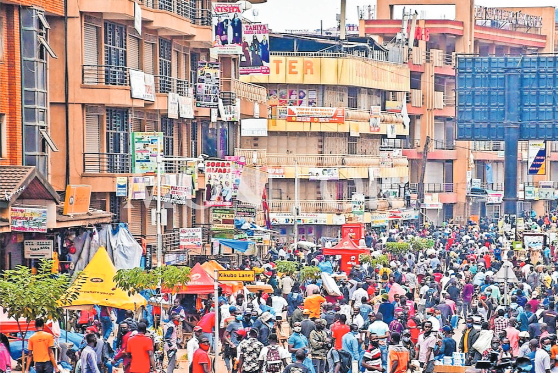Prime
Why I worry about Uganda’s future

Protesters in Masaka town burn tyres and other items in the middle of the road following the arrest of National Unity Platform presidential candidate Bobi Wine in Luuka District on Wednesday last week. A police report seen by this newspaper has put the tally of those killed at 50. PHOTO/DAVID LUBOWA
What you need to know:
- Mr Okodan Akwap says: Uganda is taking the wrong political direction. It is particularly wrong for future generations.
We must stop the current politically instigated violence. If we do not act now, we risk exposing many people, especially the young, to the debilitating consequences of post-traumatic stress disorder (PTSD).
PTSD can develop if a person experiences frightening events. We are seeing such events frequently happening in the form of protests and the heavy-handed response of security agencies. Already dozens of our people have been killed in the name of political campaigns.
The traumatising violence we are seeing all around us may come back later to torment many of us in the form of repeated memories or flashbacks.
This can happen when the affected people are sleeping, trying to sleep or are wide awake. Sadly, many may not even know what is ailing them.
I did not know much about PTSD until I went to America on a journalism fellowship in 1990, a few months after the fall of the Berlin Wall in November, 1989. That global-shaking event, happening exactly 30 years before the outbreak of Covid-19, laid bare the wickedness of the West-East divide. People all over the world suddenly came to know the scale of human rights abuses by the East German State, also known as the German Democratic Republic (GDR).
Many of the persecuted people were labelled “dissidents” by the GDR. Keenly watching TV, I was unsettled by so many of the terrible stories and pictures about torture and other human rights abuses. One day, I got a flashback of a frightening incident that troubled me when I was a boy.
It happened shortly after Idi Amin ousted Milton Obote in a bloody coup on January 25, 1971. I was 12 and in a primary school choir in Kumi District.
There was a musical contest for primary schools in the then Teso District. (Now split into 10 limping districts - Bukedea, Kumi, Ngora, Serere, Soroti, Kalaki, Kaberamaido, Amuria, Kapelebyong and Katakwi). Our school made it to the finals held in Soroti Town, the district headquarters.
We set off by lorry on the Kumi-Soroti road. We sang. We giggled. We played. All was well until we got to Awoja Bridge on Lake Kyoga. Suddenly, our cheerfulness turned icy. We froze at the sight of so many dead people, some in military uniform, piled like logs by the lakeside.
The previous night, someone had driven a tipper truck and tried to tip the gruesome load it carried into the lake but failed. Only a few bloated bodies were floating on the lake. Most of them were on the edge of the lake.
Nobody had warned our choirmaster who was seated in the cabin of the lorry. Perhaps he would have prevented us from seeing the frightening images we saw. Some bodies were headless. Some were cut into pieces, especially from the torso and limbs. There was blood everywhere.
We should have turned back to Kumi. But we didn’t. We went to participate in the contest. However, we hardly sang. We croaked. At lunchtime, they served us rice and meat. We never touched the meat. We pecked at the dry rice. They gave us Fanta, which was a very popular soda for children. We didn’t drink it. It looked like bottled blood. They gave us water. We shook our heads.
We had just seen water that had turned red. We performed badly. We returned quietly to Kumi using the longer route from Soroti via Brooks Corner in Serere.
Years later, when the frightening images of all those mutilated bodies that were dumped by the lakeside returned to torment me, I was lucky to be in America. I sought adequate counselling. That’s how I dealt with PTSD. Still, this is not a story I tell every day.
Now I worry a lot about the future of Uganda. I see dark clouds gathering over our country. I worry that the political intolerance we are witnessing may lead to a time when our country will again be plunged into a full-blown cycle of politically instigated killings and revenge killings.
We must change direction. We must avoid the traumatising effects of politically originated violence

Author, Mr Okodan Akwap. PHOTO/COURTESY
Dr Akwap is the deputy vice chancellor for academic affairs at Kumi University. [email protected]




